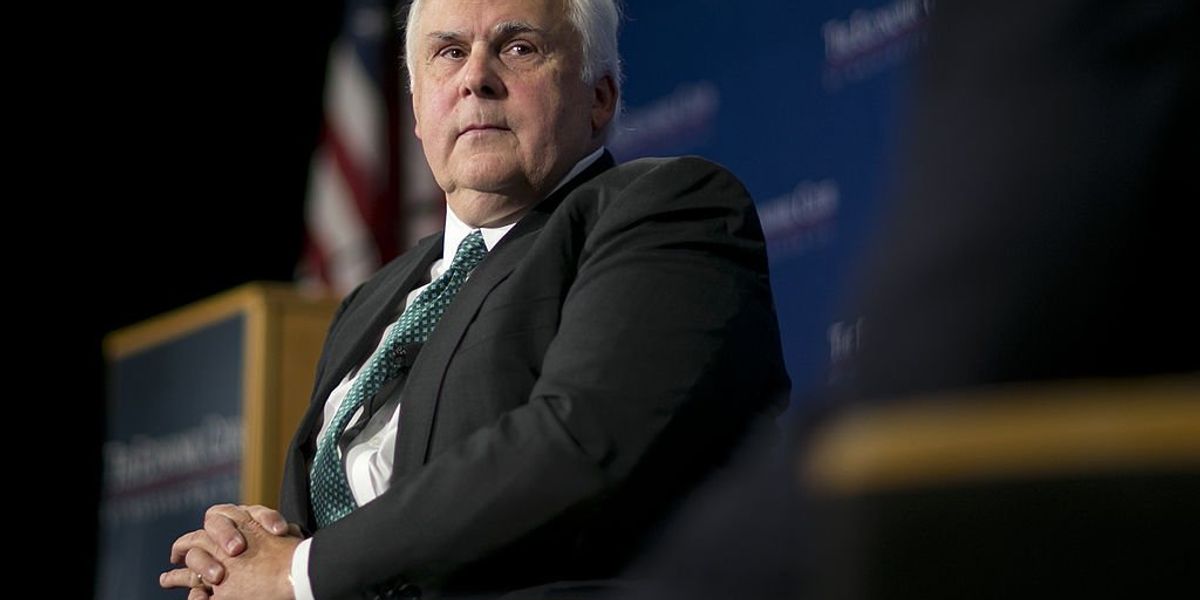The “C” grade FedEx founder Fred Smith received from a Yale professor on a paper outlining his vision for an overnight delivery service is much less remarkable than is often assumed. Naturally, Smith got a C. Rest assured that most investors gave him an F, assuming they bothered to hear Smith’s pitch in the first place.
Evidence supporting the above claim can be found in the billions Smith left behind, along with the market cap ($54 billion) of FedEx itself. Smith’s wealth and FedEx’s valuation are evidence of Smith’s entrepreneurial genius — his ability to see what others couldn’t, to act decisively, and to execute brilliantly on a vision that defied conventional wisdom.
At least rhetorically, Donald Trump sees interconnectivity as impoverishing. That’s too bad.
Stop and contemplate the miraculous nature of Smith’s innovation. No doubt many wished they could have next-day or two-day delivery. But as Smith’s billions yet again indicate, his greatest insight was in figuring out how to solve a problem that appeared insolvable: how to profitably move documents around the U.S. and around the world overnight. Investors didn’t believe it could be done, which is why opposite-thinking, passionate people like Smith are so crucial to progress.
Which brings us to economist Joseph Schumpeter’s notion of “creative destruction.” It was his way of saying that great business ideas are routinely replaced by even better ones. Stasis is death in business.
Adapt or die
Smith knew this well. Miraculous as overnight delivery was, the proliferation of fax machines in the 1970s and ’80s could have been an existential threat to FedEx. Same with email, PDF attachments, hyperlinks, and eventually DocuSign in the 1990s and beyond.
The easy move would have been to sell or shut down what technology was rapidly rendering dated — but that wasn’t Smith. A free thinker to the core, according to people like Cato Institute co-founder Ed Crane (Smith served on Cato’s board), who knew him well, Smith no doubt grasped that a world increasingly connected by split-second technology would be a prosperous one. And prosperous people don’t just want market goods — they want them quickly.
RELATED: The tax trick pitting old-guard Republicans against the populist new right
Photo by Eric Lee/Bloomberg via Getty Images
While many entrepreneurs might have sold in the face of a technological onslaught, Smith kept on building. He pivoted his business to become more valuable — ironically, the more free-market forces rendered FedEx’s initial purpose dated and obsolete. Documents were to FedEx what books were to Amazon: just the test case for a business concept that would have even greater purpose the more the world thrived based on the connectivity that had, in so many ways, vitiated FedEx’s original business.
Smith’s lesson for Trump
The free, rapid movement of people and communications was only existential for Smith and FedEx insofar as he was unwilling to pivot. In other words, the free trade that Smith venerated didn’t victimize him or, for that matter, any entrepreneur capable of seeing that prosperity born out of open trade frequently creates even better lines for businesses to expand into. That’s why FedEx didn’t die long ago. Smith was too smart — not just for Schumpeter, but also for President Donald Trump.
At least rhetorically, Trump sees interconnectivity as impoverishing. That’s too bad. As Smith’s towering achievements indicate, the only true barriers to prosperity are those that separate producers from one another.
It’s a long way of saying Trump could learn from Smith’s constant evasion of creative destruction. The latter isn’t just an understatement — it’s also urgent.
Editor’s note:This article was originally published by RealClearMarkets and made available via RealClearWire.
Read the full article here







![Georgia Judge Tosses Several Charges Against Trump as Case Continues to Unravel [WATCH] Georgia Judge Tosses Several Charges Against Trump as Case Continues to Unravel [WATCH]](https://www.lifezette.com/wp-content/uploads/2025/01/2025.01.06-03.27-lifezette-677bf6474dc8f.jpg)



![Hunter Biden Floats Charlie Kirk Conspiracy, Attacks Journalist That Exposed Him [WATCH] Hunter Biden Floats Charlie Kirk Conspiracy, Attacks Journalist That Exposed Him [WATCH]](https://www.lifezette.com/wp-content/uploads/2025/08/2025.08.06-11.07-lifezette-6893378283a4a.jpg)
